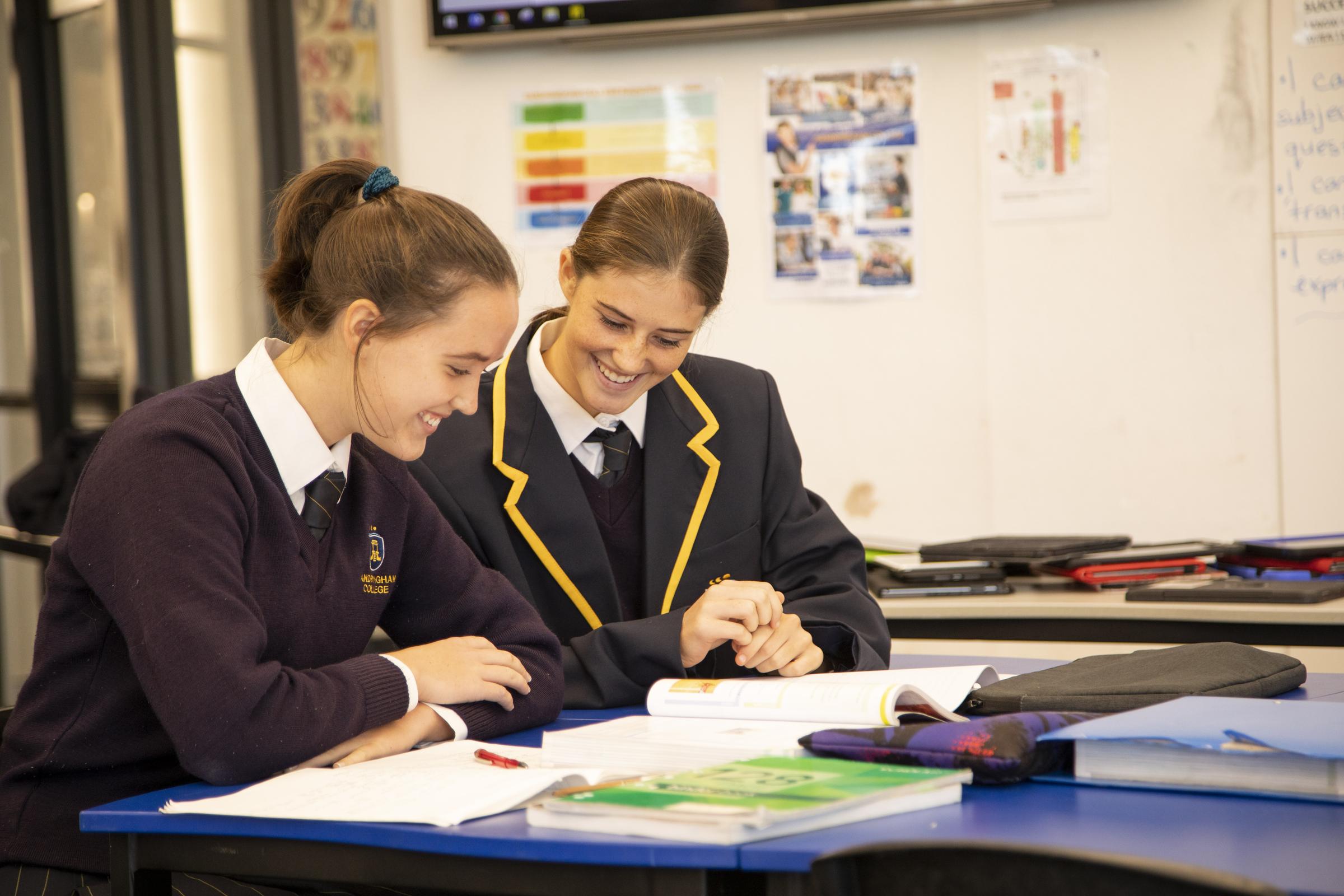Literacy and Numeracy
Dr Wendy Taylor (Numeracy Leader) and Denholm Pickering (Literacy Leader)

Literacy and Numeracy
Dr Wendy Taylor (Numeracy Leader) and Denholm Pickering (Literacy Leader)
Overview
The profile of Literacy and Numeracy has been lifted at Sandringham College in 2021, with two Learning Specialists now employed to support students in these crucial areas of learning. Wendy Taylor and Denholm Pickering, for Numeracy and Literacy respectively, have been hard at work in a number of ways: supporting students to improve their skills in the classroom; delivering professional development to all staff; working with specific domains to encourage great pedagogical strategies; and forging great learning relationships in the process. In terms of student support, there is a focus (through the MYLNS program) on Year 8 and Year 10, with several other support programs in place. For Literacy, the Advance program at Year 7 and 8 is up and running, with students setting themselves goals for achievement in both the short term and long term. They will then measure their progress each week (and more formally every 6-8 weeks) against these goals, providing a student-led learning model with significant potential for progress. This is also being used at Year 10. A similar model has been adapted for use in Numeracy, with students completing activities specifically designed to support them in the areas they most need it. Finally, lots of positive feedback is getting back to the learning specialists about their methods of staff engagement during professional development. Literacy and Numeracy have come to the fore this year, and it is intended that they stay there.
Literacy Focus
Reading Habits.
Establish a routine whereby your child reads for pleasure, with no stakes, every day, for 15-20 minutes. It could be a graphic novel, the sports section of the newspaper, a novella, fantasy, thrillers, romance, anything that they will be engaged in. If they 'don't want to read', explain that the when and what are negotiable, but the act of reading as a habit is not. Once the routine has been established, you can start to build in more difficult writing that challenges them and extends their vocabulary.
Numeracy Focus
Numeracy at Home:
Many parents would love to help their children use mathematics confidently and accurately, but often don't know where to start. Fortunately we are here to help! Below are some strategies and ideas, many of which will be unpacked further in subsequent newsletters. Watch this space!
More information can also be found at http://numeracyguidedet.global2.vic.edu.au/numeracy-at-home/
Joke: What's the king of the pencil case? The ruler!
Puzzle: Using only 3¢ and 8¢ stamps, how many different ways can you make a total of 73¢?